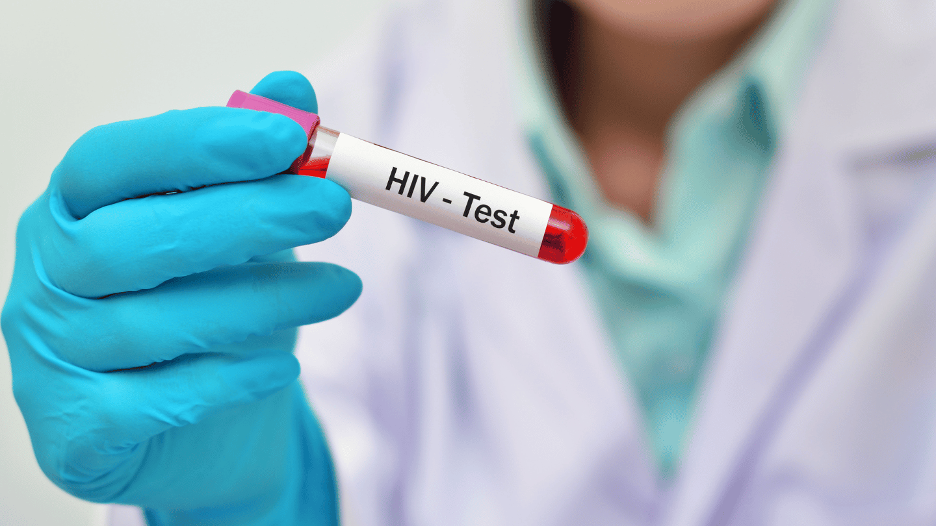
What is usually the first sign of HIV? Symptoms, diagnosis, and what to do.
HIV, or Human Immunodeficiency Virus, is a condition that can lead to serious health complications if not detected early. Understanding the early signs is crucial for timely intervention and treatment. But what is usually the first sign of HIV?
Let's explore the symptoms, the importance of early detection and how CityMD can help.
What is usually the first sign of HIV?
The first sign of HIV is often flu-like symptoms that appear within 2-4 weeks after exposure to the virus. This stage is known as acute HIV infection. During this time, the virus rapidly multiplies and the body responds.
Here are some common early symptoms of HIV:
- Fever
- Chills
- Night sweats
- Muscle aches
- Sore throat
- Fatigue
- Swollen lymph nodes
- Rash
You may easily mistake these early HIV symptoms for the flu or other viral infections, so they often go unnoticed. It's important to remember that not everyone will experience these symptoms and the only way to confirm HIV is through HIV testing.
Why early HIV detection is important.
Early detection of HIV is vital. Knowing what is usually the first sign of HIV can lead to early diagnosis and treatment, which can significantly improve health outcomes.
Here’s why early detection matters:
- Reduces viral load. Early treatment can reduce the amount of HIV in the blood, known as the viral load.
- Prevents progression. Early intervention can prevent HIV from progressing to AIDS, a more severe stage of the virus.
- Protects others. Knowing your HIV status can help prevent the spread of the virus to others.
Pro tip: If you've recently engaged in activities that could expose you to HIV and are experiencing any of these symptoms, it's essential to get tested as soon as possible.
Can HIV be cured at an early stage?
A common question that arises is: Can HIV be cured at an early stage? The short answer is no, HIV cannot be cured, even at the early stage. However, early detection and treatment can make a significant difference in managing the virus and maintaining a healthy life.
Here’s what you need to know:
- There is no cure, but HIV is manageable. While there's no cure for HIV, antiretroviral therapy (ART) can effectively control the virus. Starting treatment early can reduce the viral load to undetectable levels, meaning the virus is not transmittable, and you can lead a long, healthy life.
- The importance of early treatment. Again, the earlier you start treatment, the better. Early intervention can prevent the virus from damaging your immune system, reducing the risk of complications and other infections.
- Continuous care. HIV requires lifelong treatment. Regular monitoring and adherence to your ART regimen are crucial to keeping the virus in check.
- Hope for the future. While there’s currently no cure, ongoing research continues to explore potential cures and vaccines. Advances in medicine have already transformed HIV from a fatal disease to a manageable condition, and the future holds promise.
HIV testing at CityMD.
At CityMD, we offer confidential and rapid HIV testing. We understand that the idea of getting tested can be worrisome, but knowing your status is the first step toward taking control of your health.
What to expect during the test.
- Fast results. CityMD offers HIV testing with turnaround time generally within 2-3 days. Rapid HIV tests are also available on site, with results available within 15 minutes.
- Confidential. Your privacy is our priority.
- Results. You'll get your results quickly, sometimes on the same day.
What should you do if you experience early HIV symptoms?
If you're experiencing flu-like symptoms and are concerned about what is usually the first sign of HIV, here's what you should do:
- Visit CityMD. Our healthcare professionals are here to help. We’ll guide you through the testing process and answer any questions.
- Get tested. Even if you feel unsure, testing is the only way to know for sure.
- Follow-up. If your test is positive, we'll discuss your next steps and connect you with the necessary resources.
When should you get tested for HIV?
- If you've had unprotected sex.
- If you've shared needles or other drug paraphernalia.
- If you've been sexually assaulted.
- If you have any other reason to suspect you may have been exposed to HIV.
Final thoughts.
Understanding what is usually the first sign of HIV and getting tested can be life-saving. At CityMD, we’re here to provide you with the care and support you need. Don’t wait—your health is too important.
Ready to take control of your health?
Visit your nearest CityMD urgent care location today. We're here to help you stay informed, stay healthy and take the necessary steps to protect your well-being.
The more people who are aware of the early signs of HIV and the importance of testing, the better we can prevent the spread of the virus.

We’re ready to care for you.
Visit any CityMD urgent care location in your community today for an evaluation with one of our expert providers.